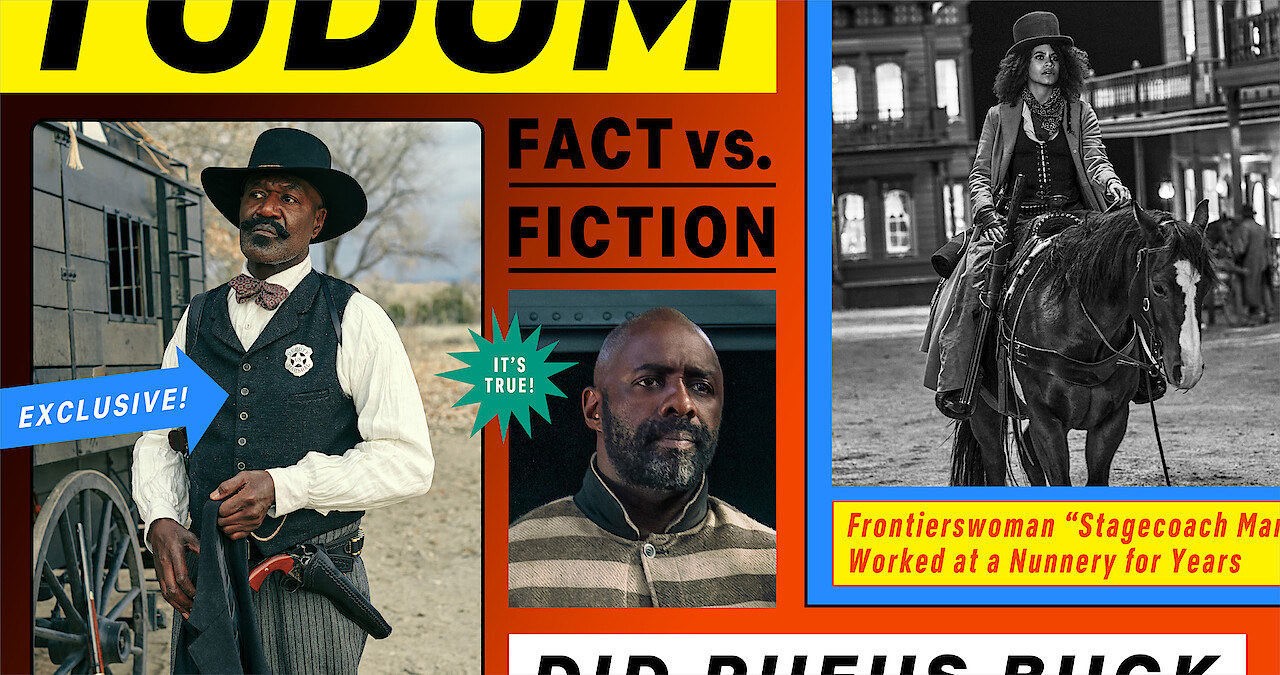
By Diedre Johnson
- The bad guys were worse and the good guys were better than you think.
Sometimes the truth is more interesting than fiction. This definitely rings true when you take a look at the lives behind the cowboys and outlaws portrayed in Netflix’s The Harder They Fall. The true stories behind their actual experiences may surprise you and show you just how wild the Wild West really was.
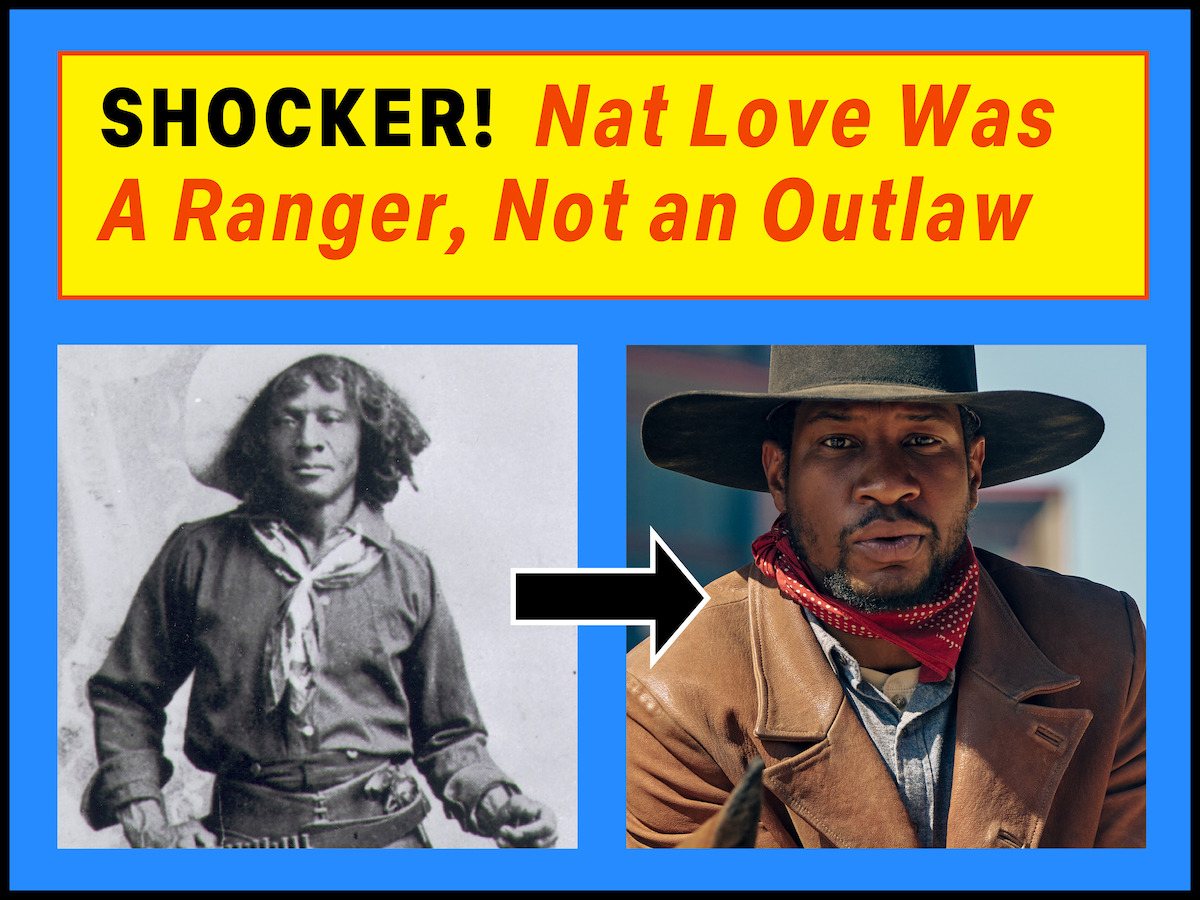
While Jonathan Majors plays a romanticized outlaw version of Nat Love, in reality he cowboyed up in a different way, earning his Deadwood Dick nickname for his work on ranches and in rodeos.
In The Harder They Fall, Love’s whole life is taken from him when his parents are killed by a cold-blooded criminal who left him with a permanent scar on his forehead. He turns to a life of crime –– leading his band of desperados on ambushes of other outlaw gangs –– and lives for the day he can take revenge against his parents’ killer.
In reality, Nat Love was born a slave, freed, met Billy the Kid, worked on ranches and rode in rodeos, getting the nickname Deadwood Dick because of his expertise with breaking horses while working on a ranch in Deadwood, South Dakota. He married his girlfriend, but she wasn’t Stagecoach Mary. Her name was Alice, and they had one child. He gave up working as a cowboy and became a railroad porter. He wrote a memoir called The Life and Adventures of Nat Love Better Known in the Cattle Country as “Deadwood Dick.”
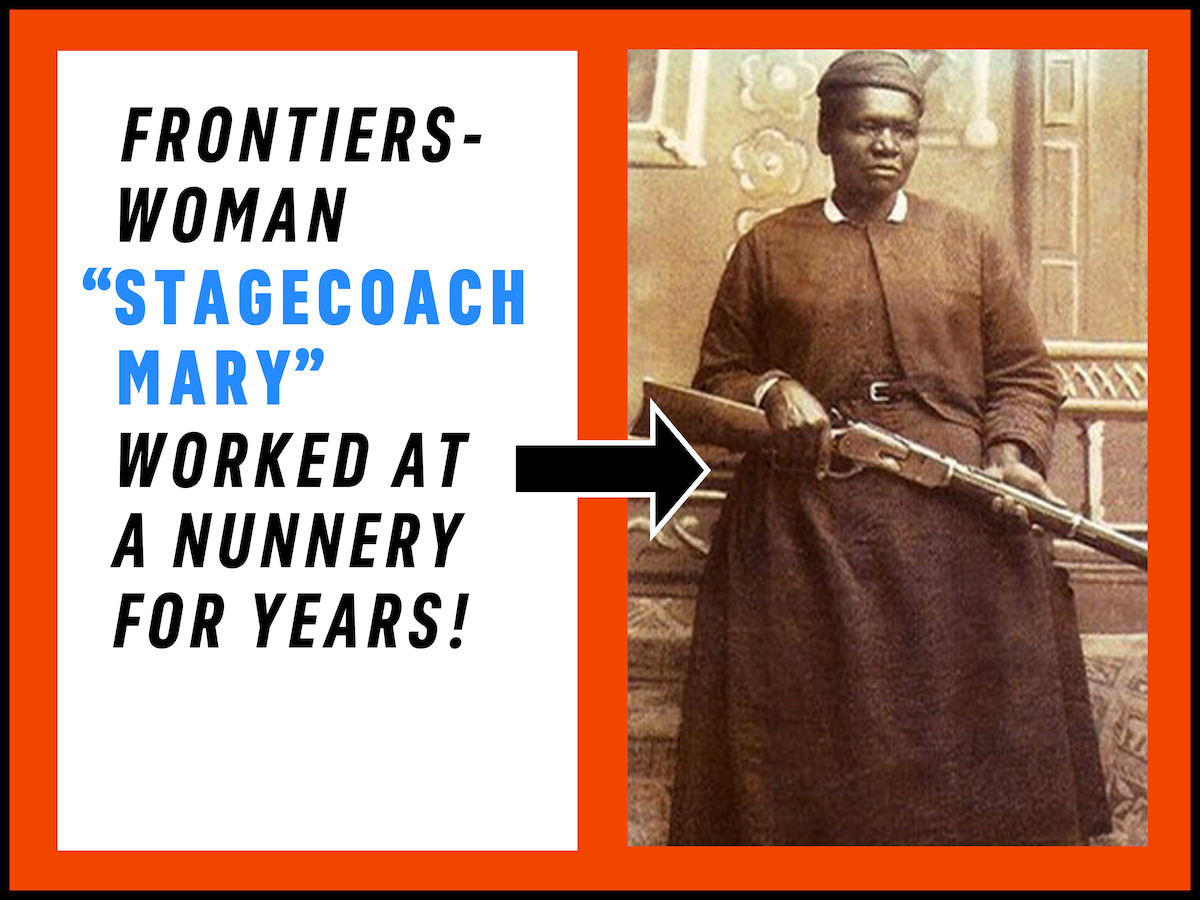
Zazie Beetz plays Stagecoach Mary, a saloon owner, entrepreneur and performer in the film. She falls in love with Nat as a member of his gang, and when he abruptly abandons it, she resents him bitterly.
There’s no historical confirmation that the real Stagecoach Mary, Mary Fields, had a romance as depicted by Beetz and Majors, but she did have an adventurous life.
Standing about six feet tall, according to those who saw her, Fields was no one to be messed with. A loner who loved flowers, gardening and a good cigar, she could also shoot a rifle and drink hooch, just like her on-screen persona.
She worked at a convent for over 10 years. At one time, she owned and operated a saloon and a laundry, but both failed. Her second successful job was working as a mail carrier out of Cascade, Montana. She was the first Black woman to do so. She delivered mail over rough terrain, and when she couldn’t get her horse and buggy through because of inclimate weather, she put the mail on her back and delivered it by foot.
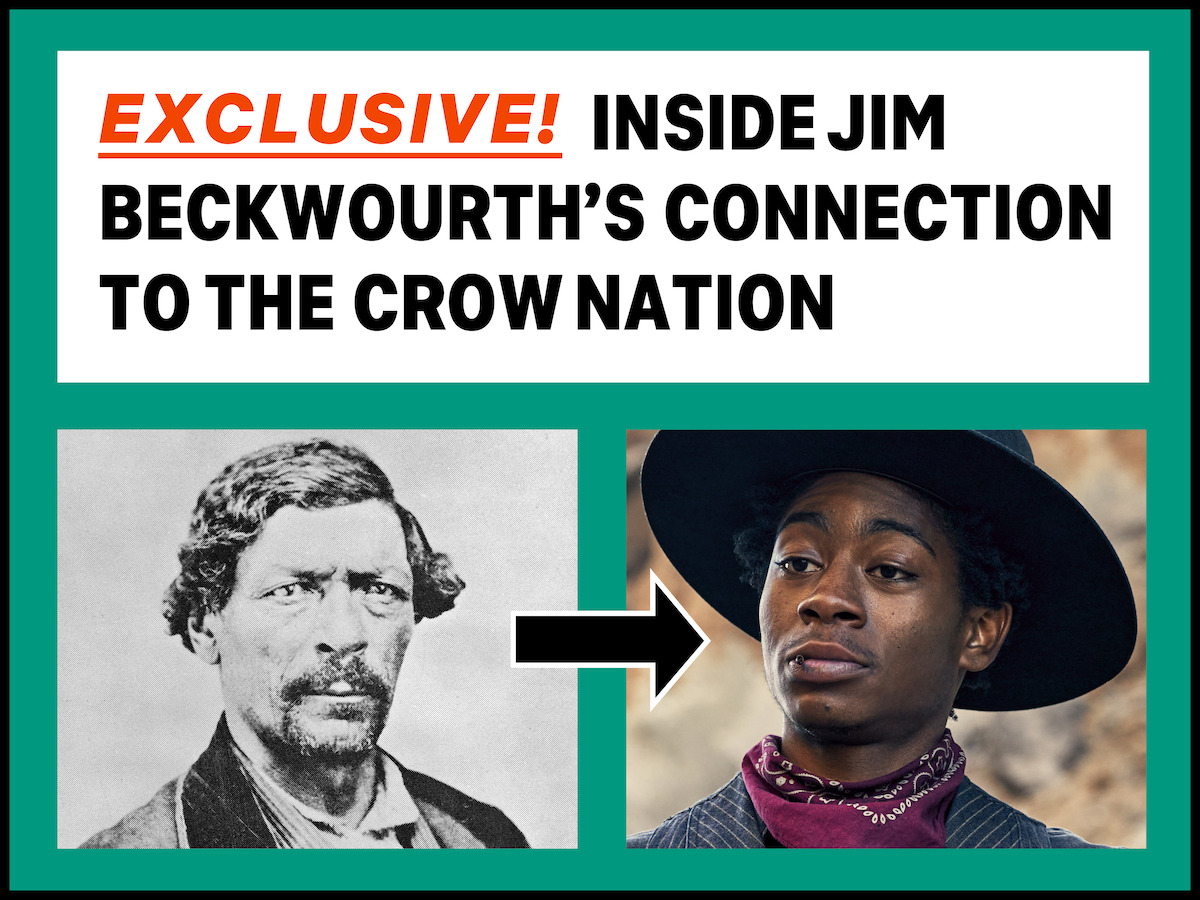
The film version of Jim Beckwourth (RJ Cyler) is a sarcastic, foul-mouthed and overconfident former member of Nat’s gang. When Nat saves him from a brutal demise, he becomes indebted to him for life. Naturally, he hates Rufus’ crew and desires to defeat one specific member in a duel –– Cherokee Bill, who is known for his gunslinging prowess.
Though Beckwourth was born into slavery, ultimately his white father commissioned his freedom. Beckwourth made a living trapping furs and was known as The Bloody Armbecause of his fighting skills. As a Freedman, Beckwourth was able to go almost anywhere he wanted, and historical information suggests he roamed the Rocky Mountains. Pictures show a man with medium-length, wavy hair with knives and other chiseling paraphernalia slung around his clothes.
He lived with The Crow Nation American Indians and became an honorary chief. He’s also known for creating four passages through the Sierra Nevada mountains, one of which is now known as Beckwourth Pass.
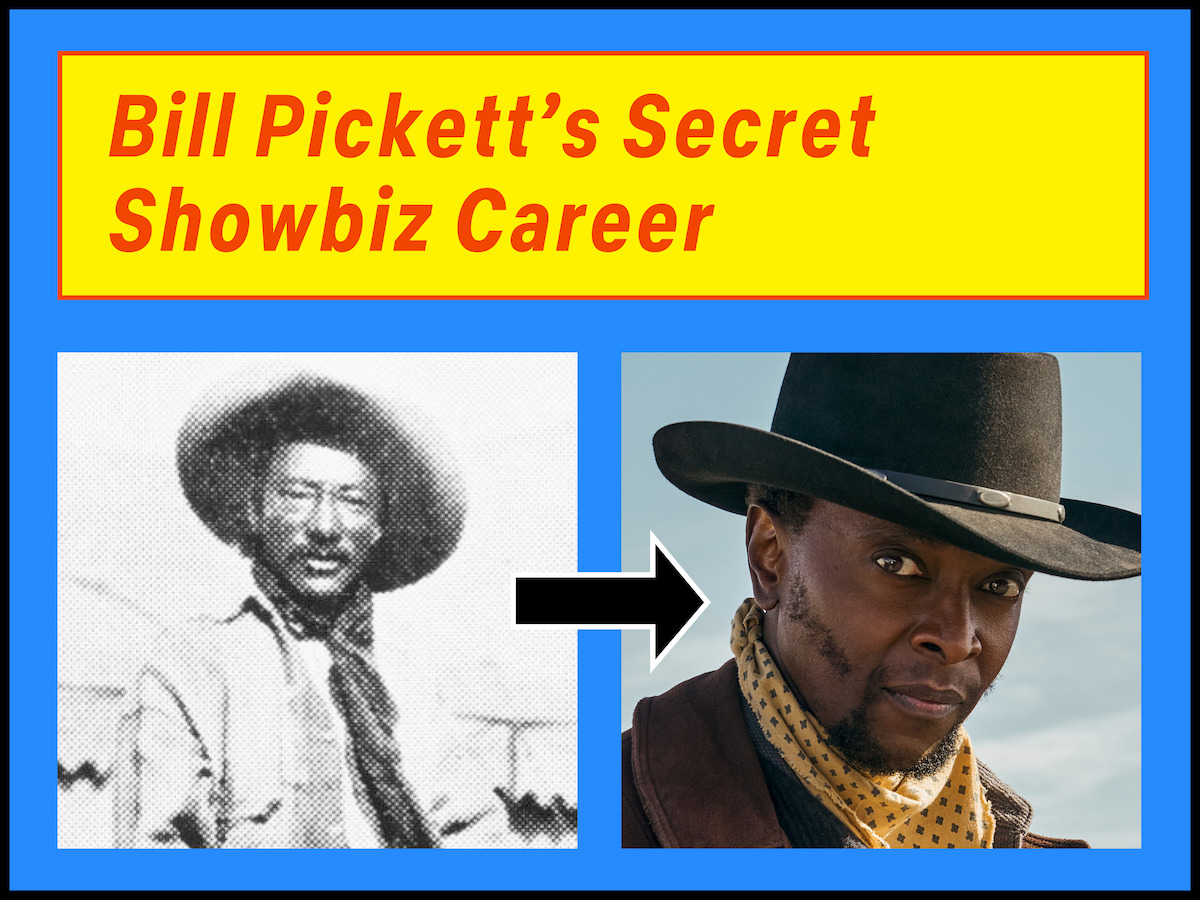
In The Harder They Fall, Bill Pickett (Edi Gathegi) is a restless, soft-spoken man who keeps a lucky coin on him at all times. Like Jim, he’s devoted to Nat –– even after the dissolution of his gang.
Not so in real life. Pickett introduced bulldogging (also known as steer wrestling), where a rider falls quickly but gently off their horse and grabs the horns of a steer, disorienting and wrestling with the steer until it falls to the ground. Pickett would sometimes even bite the lip or ear of the steer to create further disorientation.
He also participated in the Buffalo Bill Cody Western shows with early cowboy movie star Tom Mix. He got a chance to be in two movies: Crimson Skull (1922) and The Bull-Dogger (1922) for a Jacksonville, Florida–based production company, Richard E. Norman Studios.
Currently, the Bill Pickett Invitational Rodeo, named after Pickett, has been going on for over 35 years. The rodeo was founded by the late talent producer and concert promoter Lu Vason to spotlight Black rodeo participants and the contributions made by African Americans to the Old West.
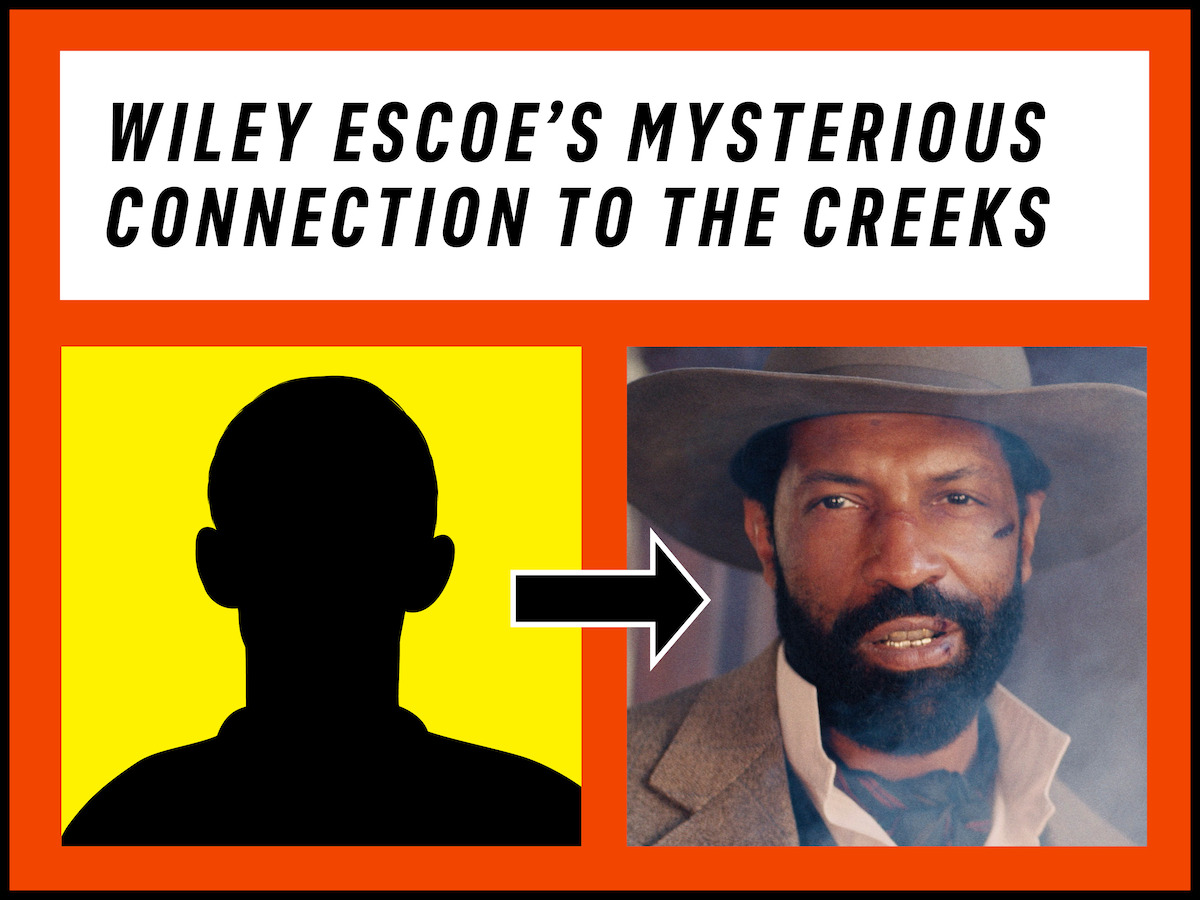
Deon Cole portrays Wiley Escoe, the greedy sheriff (and mayor) of Redwood City who takes over for Rufus when he’s sent to prison. After Buck’s departure, Wiley sells out the townspeople's homes, land and businesses to the highest bidder to line his own pockets. When Rufus rolls back into town, Wiley has hell to pay.
In real life, Wiley was one of the Black deputy US marshals during the 1890s; a small group that worked under Judge Isaac C. Parker, however, we don’t know a lot more. There was definitely a Wiley Escoe, and he has been listed as a US Marshall (though not as famous or celebrated as Bass Reeves) but probably not in Redwood City, as the California town wasn’t yet incorporated. He was of Black and Creek-American Indian descent, and court records show a Wiley Escoe and perhaps other family members applied to the House of Representatives in 1891 for compensation as “recognized members of the Creek Nation.”

According to historical records, Buck lived by the gun and died by the rope.
Rufus Buck (Idris Elba) is the man Nat is after in the Netflix film. A powerful outlaw and a gentleman in the West, he strikes fear into the hearts of anyone unfortunate enough to cross his path. He once was in charge of the town of Redwood City but was sent to prison in Yuma after an unspecified crime. After a pardon, he’s freed from prison and ready to reclaim his throne.
There was a real Rufus gang, but the buck stops there. In 1895, Buck formed a gang of young men — some only in their teens — and all members were part Black and part Creek-American Indian, like Buck. Their reign was short-lived. The gang was caught about 13 days after the its creation (but not before members carried out a crime spree of robbery, rape and murder). Buck wrote a heart-breaking poem called “My Dream” from his jail cell just hours before he and his gang were hanged.

Cherokee Bill (LaKeith Stanfield) was a mean mutha-shut your mouth, killing and robbing, robbing and killing both on screen and off. Known for his quick draw, Bill is suave, strategic and vicious in the film. He and Trudy lead a death-defying effort to free Rufus from captivity by raiding a prisoner transport train occupied by members of the US Army.
The real Cherokee Bill certainly could have pulled the get-Rufus-free card. Crawford Goldsby aka Cherokee Bill was of Black, white, American Indian and Mexican heritage, he began a life of crime in his teens, wounding a man he intended to kill. He later joined the Cook gang in the Oklahoma American Indian territory and began stealing horses, robbing banks, stagecoaches and trains.
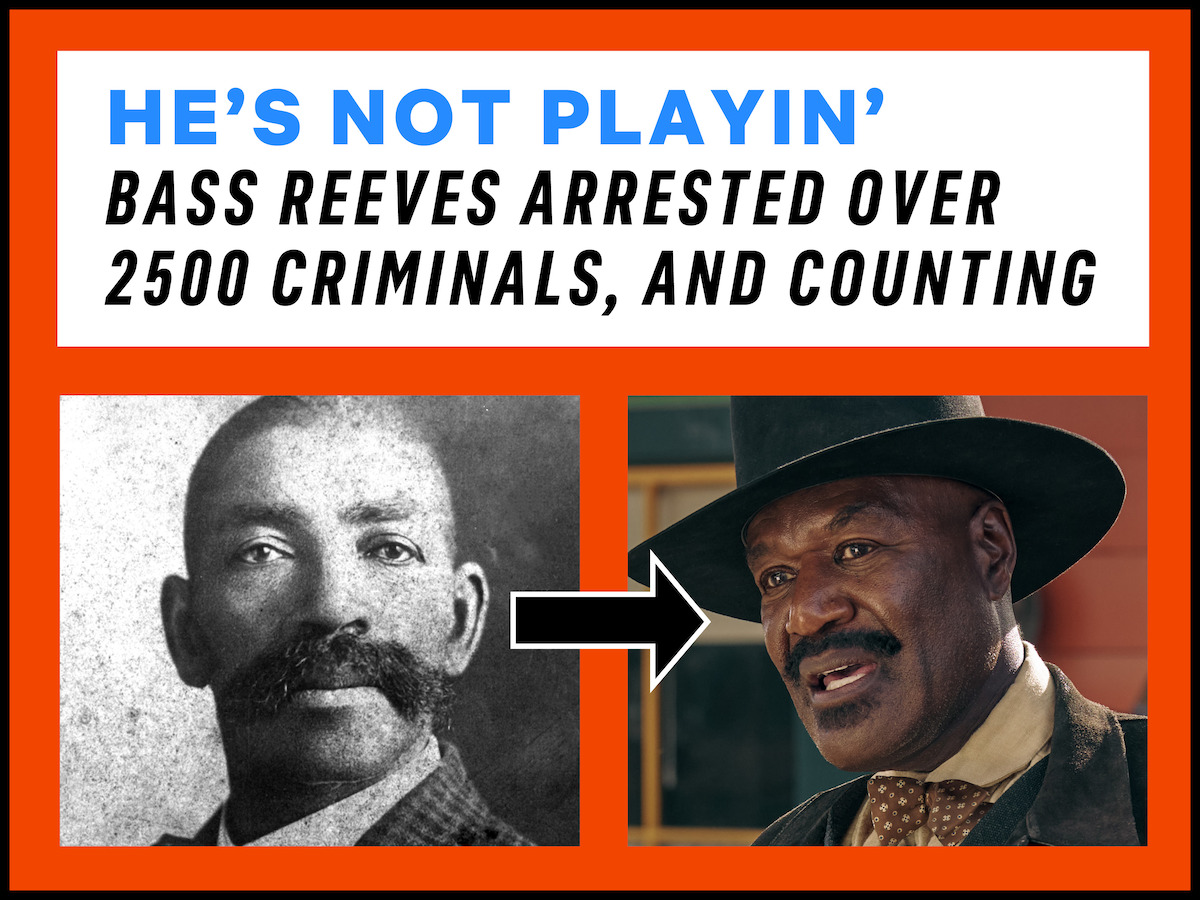
In The Harder They Fall, Bass Reeves (DelRoy Lindo) is the US Marshall tasked with bringing Nat to Fort Smith to be tried in a court of law. But it’s a ruse because the two are in cahoots to kill Rufus Buck, not bring him to justice. Reeves is a stern, world-weary veteran lawman who becomes something of a father figure for Nat.
Bass Reeves was in fact a lawman. He was the first deputy US Marshall of African American heritage in Arkansas, could shoot with his right and left hands and, it’s claimed, was never wounded. As Marshall, he reportedly killed “14 outlaws and [arrested] more than 3000.” Reeves is said by some to be the inspiration for The Lone Ranger.
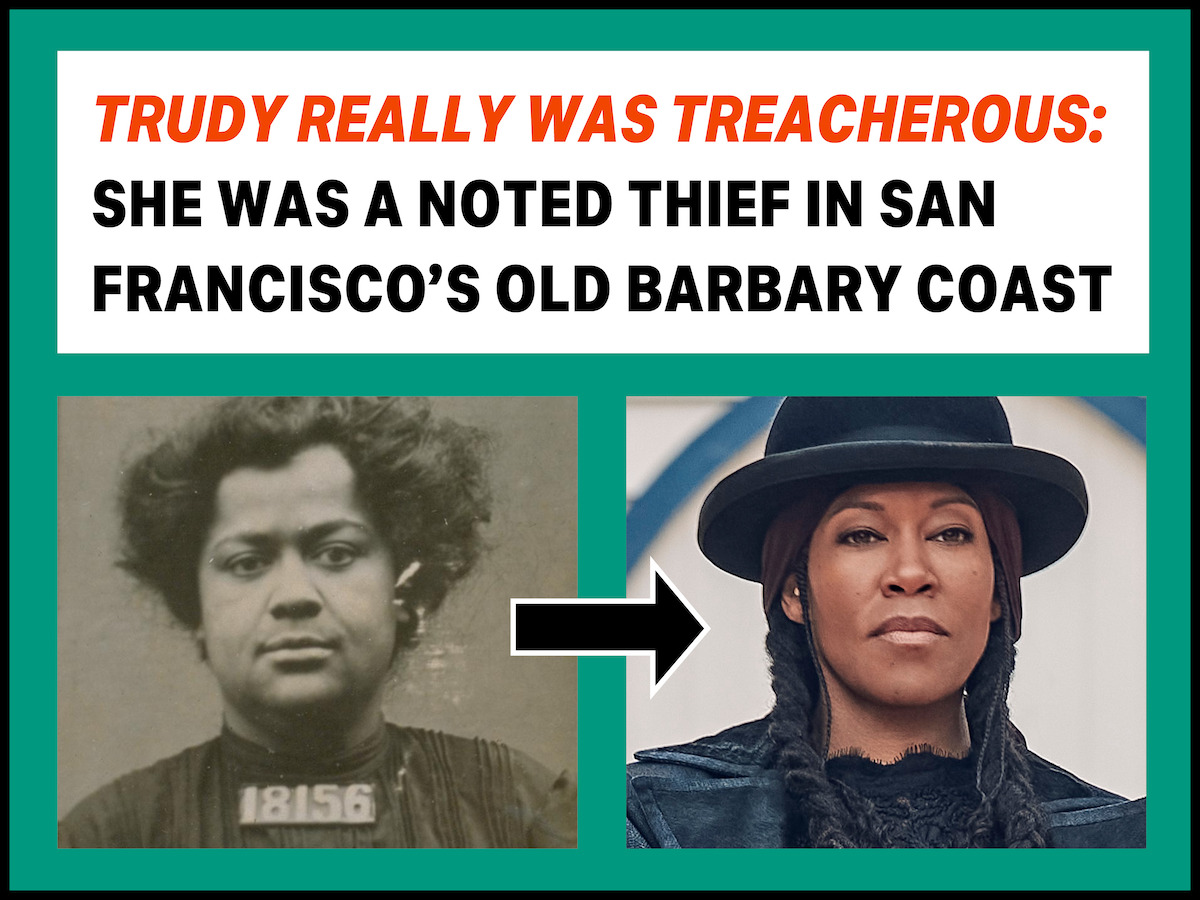
While there’s not a lot of information about Gertrude “Trudy” Smith (played by Regina King), there’s a record of her working as a pickpocket in the Barbary Coast, an area of San Francisco that consisted of bars, dance halls and a red light district during the late 19th and early 20th centuries. The area was known to attract small-time criminals. Smith allegedly worked with another woman, Dolly Mickey. After getting arrested, Smith and Mickey left San Francisco in 1906, and where they went is lost to history.